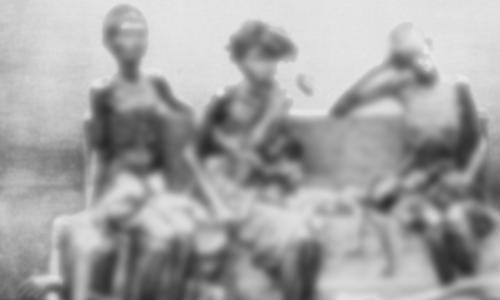Image Source: Titodutta, Wikipedia
“Famine or no famine, Indians will breed like rabbits.”
– Winston Churchill.
In the winter of 1942 the shores of Bengal were hit by several cyclones and experienced severe flooding, leading to widespread damage to life and property. At the same time a fungus attacked the rice crops and destroyed up to 90% of many rice varieties in Bengal (which, back then, comprised of West Bengal, Bangladesh and parts of Bihar and Odisha). This led to the onset of famine, which was worsened due to artificial reasons, as explained below.
1942-43 was the height of the Second World War. India – after being forced into the War without any notice – was fighting on the side of the Allies. The Eastern Front was dominated by Japan, whose troops had quickly conquered most of Southeast Asia, and were steadily making their way up to Bengal and Northeast India. The alarmed British government gathered all the rice and hoarded it – so that it could be used to feed Allied troops back in Europe.
In March 1942, the Japanese occupied Burma, which was the largest exporter of food grains to Bengal. The subsequent influx of Burmese refugees in Bengal and the hasty expansion of the British Indian Army in the region increased demand for rice and grains.
As such, in the period between March and October 1943 the price of rice increased 4 times, forcing the poor to sell their lands and belongings, and the landless to starve to their deaths. These factors only escalated the already massive food shortage.
The Bengal tragedy was further worsened by the wartime policies of British PM Winston Churchill. Not only were food grains forcibly exported from starving Bengal to Britain, but food from Australia which could have fed Bengali mouths was diverted to the Balkans. Also, inexplicably, Churchill turned down offers of food from Canada and the US.
The animosity that the British PM had towards Indians is well-documented. A typical colonialist, he deemed Indians as backward and the plight of millions of Indians starving and dying did not move him one bit. When notified about the rising humanitarian crisis in Bengal by authorities in New Delhi, Churchill’s reply was: “If food is so scarce, why hasn’t Gandhi died yet?”
4 million people died in the Bengal holocaust, a number which could have been greatly reduced had it not been for British policy failure. It was a colossal loss of life, one of the most extreme in history, and yet we don’t find explicit mention of the famine in our textbooks or any history documentaries. Indian research on the famine is also unsatisfactory. And most biographies of Churchill omit his role in this genocide.

A child who starved to death during the Bengal famine of 1943
Famines were historically frequent in India, but what set the famine of 1943 apart was how
• Its disastrous effects were mainly man-made.
• The colonial government overlooked Indian lives for British lives.
• The famine has gone missing from history textbooks and documentaries.
The Bengal famine is a perfect example of how ineffective policymaking can lead to disaster. It also teaches us that history does repeat itself if we are not careful – the 1943 Bengal famine was very similar to the 1770 Bengal famine where 10 million died. Then too, the main reason behind escalation of tragedy was harmful policymaking – by the British East India Company.
The famine also reminds us that Indian history is not documented well enough, given that there is not adequate research on the issue at all. Also, it warns us to not elevate historical figures like Winston Churchill to the status of legends without analyzing their work from all points of view.












